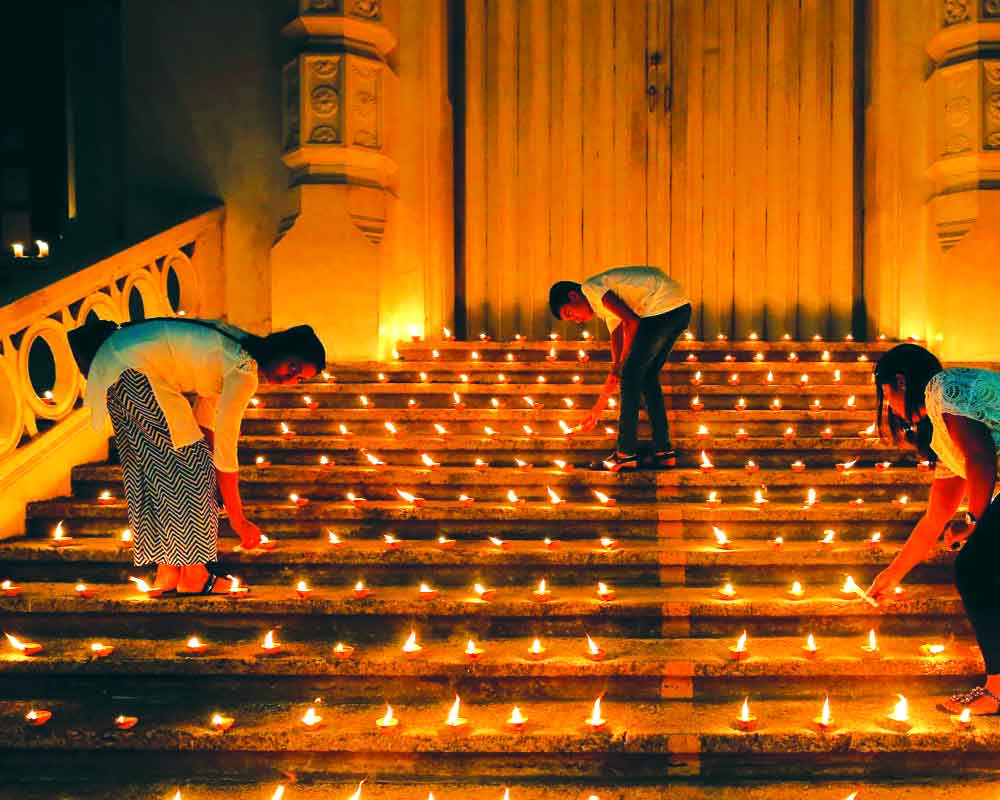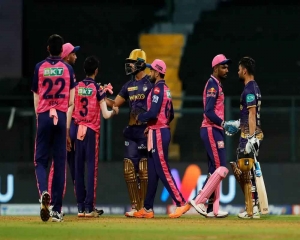The wounds from the Easter Sunday Massacre linger, but within Sri Lankans’ resilience lies a beacon of hope, illuminating a path forward amidst profound despair
After the Easter attack tragedy, there arose a chorus, delving into the search for a “mastermind” behind the barbaric attack. Known as the Easter Sunday Massacre, on 21st April 2019, eight suicide bombers detonated themselves, targeting selected places in Colombo and Batticaloa, resulting in the deaths of over 260 innocent people and injuring hundreds more. A former Attorney General, a key figure in this discourse, ignited speculation by suggesting a possible hidden agenda. However, his evasion of the court and avoidance of investigators seeking clarification on his previous Statements only intensified suspicions. Politicians, social activists, journalists and even ordinary citizens unwittingly propagated a conspiracy theory based on prejudices and unverified media reports.
From my perspective, this conspiracy theory inadvertently served a unique purpose amid the chaos and irregularities. It acted as a temporary balm, diluting the rising tide of animosity against Muslims and briefly restoring social equilibrium. Without it, the nation risked a recurrence of the 1983 ethnic riots, albeit on a larger scale. Yet, as the conspiracy theory gained traction, it altered the societal psyche, fostering normalcy among diverse ethnic groups, albeit with attempts by some to exploit the situation. What remains lamentable is that this theory misled the public and squandered an opportunity to establish a socio-legal framework for preventing future occurrences.
During my conversation with Malith Jayathillake, former National List Member of Parliament and head of the Sectoral Oversight Committee on National Security appointed by then-President Maithripala Sirisena, the overlooked reality became stark. The report he presented in February 2020 outlined proposals for formulating and implementing laws to ensure national security, eradicate new terrorism and extremism by fostering unity among races and religions. Regrettably, this invaluable contribution by lawmakers was largely ignored. Jayathillake dismisses the notion of a conspiracy behind the attacks, recognising instead a meticulously planned suicide mission inspired by the ideology of the Islamic State.
Concurrently, Dr Ameer Ali from Murdoch University’s School of Business and Governance dispels conspiracy notions, attributing the attack to subsequent political manipulation. Yet, in probing the roots of extremism, he identifies a turning point in 1977 when the country embraced the free market. Within certain segments of the Muslim communities, exclusivism emerged, alienating inclusivism and sowing the seeds for the proliferation of extreme ideas within the societal fabric.
In the aftermath of the tragedy, about a month later, I engaged in an interview with Jonah Blank, a Principal Investigator and Senior Political Scientist for RAND Corporation. Blank astutely highlighted two critical aspects of the Easter Sunday bombings in Sri Lanka. Firstly, he emphasised that the attack was a result of political negligence rather than being solely classified as an intelligence failure by various parties. Secondly, Blank pointed out that the Islamic State of Iraq and Syria (ISIS) did not choose Sri Lanka; rather, Sri Lankan extremists opted for allegiance to ISIS.
Addressing the ongoing political crisis in the country, Blank remarked, “When the nation’s two top officials are locked in open conflict, they can’t cooperate to ensure the safety of the citizens.” Despite my interview with Blank becoming a talking point in various media circles and social groups, rational arguments and factual information struggled to counter the persistence of conspiracy theories.
Complicating matters further, a full four years following the tragic incident, a British television channel not only fuelled baseless speculation but later begrudgingly admitted to a shocking lack of substantial evidence backing the allegations. These unfounded claims stemmed from a lone source purportedly recruited by a United Nations agency, casting a dark shadow over the entire narrative.
Amidst the discourse, I observed a political theatre unfolding, overshadowing the much-needed societal discussion. Those involved seemed more focused on accusing one another rather than earnestly seeking the truth. In the last five years since this barbaric attack, committees appointed by the President and Parliament have conducted investigations, producing lengthy reports. However, there is a noticeable absence of dialogue about future threats and the potential aftermath.
The tragic events unfolded against the backdrop of a nation grappling with its political identity and leadership struggles. Blank’s insights into political negligence shed light on a systemic issue that extended beyond intelligence failures. Sri Lanka’s socio-political terrain, marred by internal conflicts and power struggles, created an environment ripe for extremist ideologies to take root. The intricate web of political discord, coupled with a failure to prioritise national security, laid the groundwork for the devastating Easter Sunday attacks.
As the media frenzy surrounding conspiracy theories intensified, genuine efforts to understand the root causes of the attack were drowned out. Blank’s observations about the political crisis resonated deeply, underscoring the importance of unity among leaders during times of national peril. However, the cacophony of blame-shifting and finger-pointing persisted, hindering the nation’s ability to address the multifaceted challenges posed by this emerging social phenomenon.
Amid this turbulent period, the fifth anniversary of the Easter massacre serves as a distressing reminder of the collective responsibility to learn from the past and fortify the nation against potential threats. The committees’ findings, though crucial, must be more than backdated analyses; they should serve as a foundation for proactive measures and policies to safeguard Sri Lanka’s future. The narrative must evolve beyond the immediate aftermath to address the lingering societal scars and instil a renewed sense of resilience and preparedness.
After spending nearly five years immersing myself in a myriad of materials and conducting extensive interviews with numerous sources on this heinous crime, I am compelled to acknowledge the absence of any substantive facts supporting conspiracy theories. Instead, what emerges is the chilling reality of negligence and deliberate ignorance in addressing extremism and the imperative need for robust de-radicalisation efforts. I opt to accentuate the triumph of our adversaries—a triumph exacerbated by the gross negligence and underestimation displayed by defenders of national security and political stability.
Our genuine focus must now pivot resolutely towards preventing the recurrence of such crimes and sculpting a secure future for our nation, a nation that has too often lived amidst violence rather than peace, grappling with both internal and external threats. The repercussions of the Easter massacre extend far beyond the economic sphere, infiltrating into an unprecedented degeneration of societal values.
Regrettably, as we mark the fifth anniversary of the attacks, a pressing and profound necessity emerges for a narrative shift—one that moves beyond unsubstantiated accusations aimed at specific individuals. We must transcend the cycle of blame and retrospective scrutiny, opting instead for thorough approaches that delve into the underlying causes of extremism, fanaticism and terrorism regardless of ethnic or religious affiliations. This calls for a holistic approach, encompassing not only the reinforcement of intelligence and security protocols but also the fostering of a society that celebrates inclusivity, empathy and constructive discourse.
The journey toward healing and rebuilding necessitates a sincere effort from all corners of society.
Ultimately, the aftermath of the Easter Sunday bombings underscores the resilience of the Sri Lankan people in the face of immense adversity. Looking forward, it is paramount to harness this collective strength and channel it into comprehensive strategies. These must not only confront immediate threats but also lay the foundations for a future characterised by security and harmony. The lessons distilled from this tragedy should propel the nation towards a collective commitment—a commitment to unity, understanding and the prevention of recurring horrors. Otherwise, in a society where the majority languishes in a deep slumber, indulging in unproven conspiracies and scapegoating a select few, we will only rouse from our stupor when the next tragedy inevitably befalls us.
This ts the second part of the article on five years of Easter attack in Sri Lanka.
(The writer is a Sri Lankan journalist. Views are personal)


























